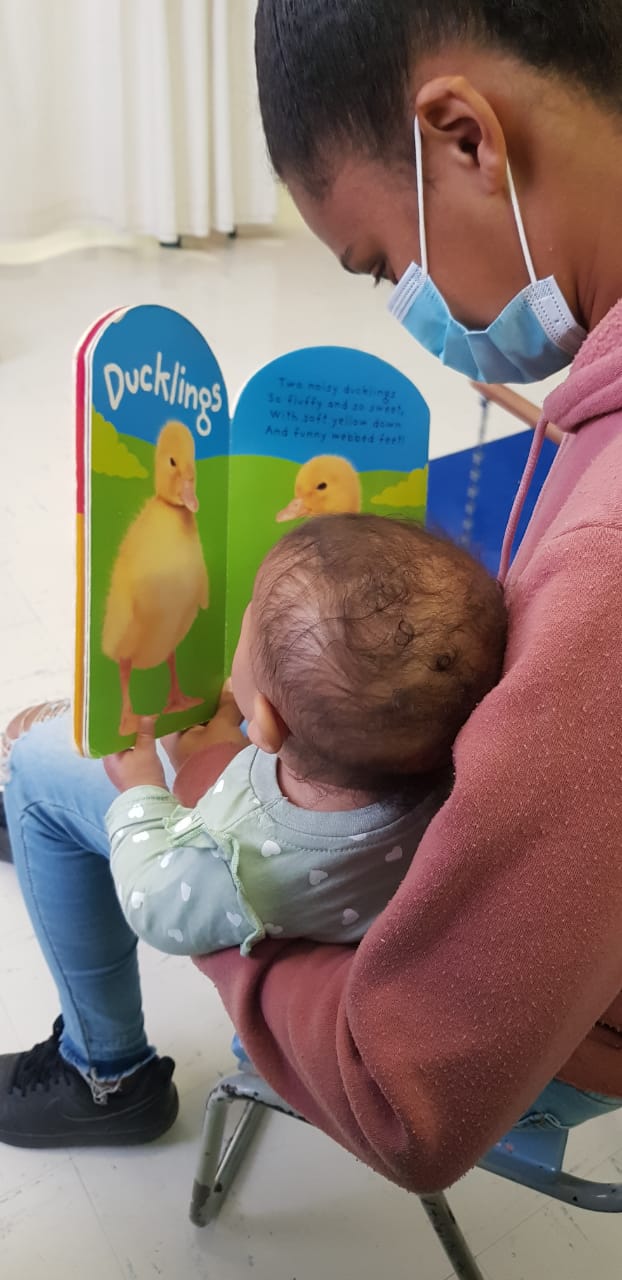
News
Celebrating World Book Day – important to read and tell stories to your children
CELEBRATING WORLD BOOK DAY – importance of reading and telling stories to your child EVEN WHEN DEVELOPMENTAL DELAYS ARE EXPERIENCED
World book day is celebrated on the 23rd April and serves as a reminder as to how reading is so integral to children’s development, especially in the First Thousand Days (FTD). The first 1 000 days mark the period of conception until your baby’s second birthday. The care provided for your baby begins even before baby is born. Brain development begins at conception and so there are many things mothers can do to protect and enhance brain development during pregnancy – avoid alcohol and smoking and eat nutritious food from the beginning. Once baby arrives, foster a safe, nurturing relationship and provide age appropriate stimulation.
Crystal Johannisen, Occupational Therapist at the Victoria Hospital shares that is important to look out for signs of delay during the first three years and seek intervention early. “Talk to your children about their experiences, narrate day-today tasks and involve them as much as possible.”
Occupational therapy (OT) is a form of health intervention that helps people of all ages who have physical, sensory, or cognitive limitations. At Victoria Hospital, Paediatric OT intervention is focused on developmental stimulation, task adaptation as well as caregiver training and education to assist children in reaching their potential and gain independence in all areas of their lives.
“We provide a service for children from birth to 6 years old with a variety of diagnosis which include autism spectrum disorder, trisomy 21, HIE, congenital deformities, cerebral palsy etc.” shares Crystal. “Many of our clients are not yet at the age where they should be reading, so we aim at developing the necessary skills and experiences that would enable them to reach their developmental milestones and for them to receive inclusive education.”
Crystal shares that there are many components involved in reading which need to be established and developed. “We provide therapeutic activities that stimulate development with various aims which include: improving attention and concentration during a task, visual discrimination, imaginative play and curiosity, comprehension, and sequencing as well as visual and auditory processing of information. For our service group, this is mainly incorporated into various play activities as we know that children learn through play.”
Interventions offered as part of the OT service and development include:
- Setting up activities that require imagination and sequencing
- Visual tasks to identify shapes and figures which is required to recognise letters and words
- Telling a story and asking the child to narrate part of it to stimulate their imagination
- Having them positioned on their caregivers lap while they read a book to provide an environment that is safe and captivating in order for them to process information (attention and concentration)
- Having them play with animal/toy figures and create their own scenarios that involve emotion, problem-solving with prompting to stimulate the aforementioned components
- Singing along to nursey rhymes together communicating about topics of interest to the child e.g. games they enjoy playing, clothing items they’re wearing, what they enjoy eating
Crystal shares that through her teams experience, they have found in their interventions with children, that most caregivers are either unable to read or do not have the time to read to their children. The following guidelines are recommended as ways to help develop good reading habits:
- Caregivers should read to their children as much as possible – it promotes language development, comprehension and understanding and helps form the bond between caregiver and child
- Go slow, ask the child if they understand what’s being said/ read and have them answer questions related to the story
- Work within the concentration span, which is often 3-5 minutes in young children
- If you have any concerns about their hearing, have at audiology test done and see a paediatrician
- Read in the child’s home language
- ALWAYS HAVE FUN as it’s the best way to learn





